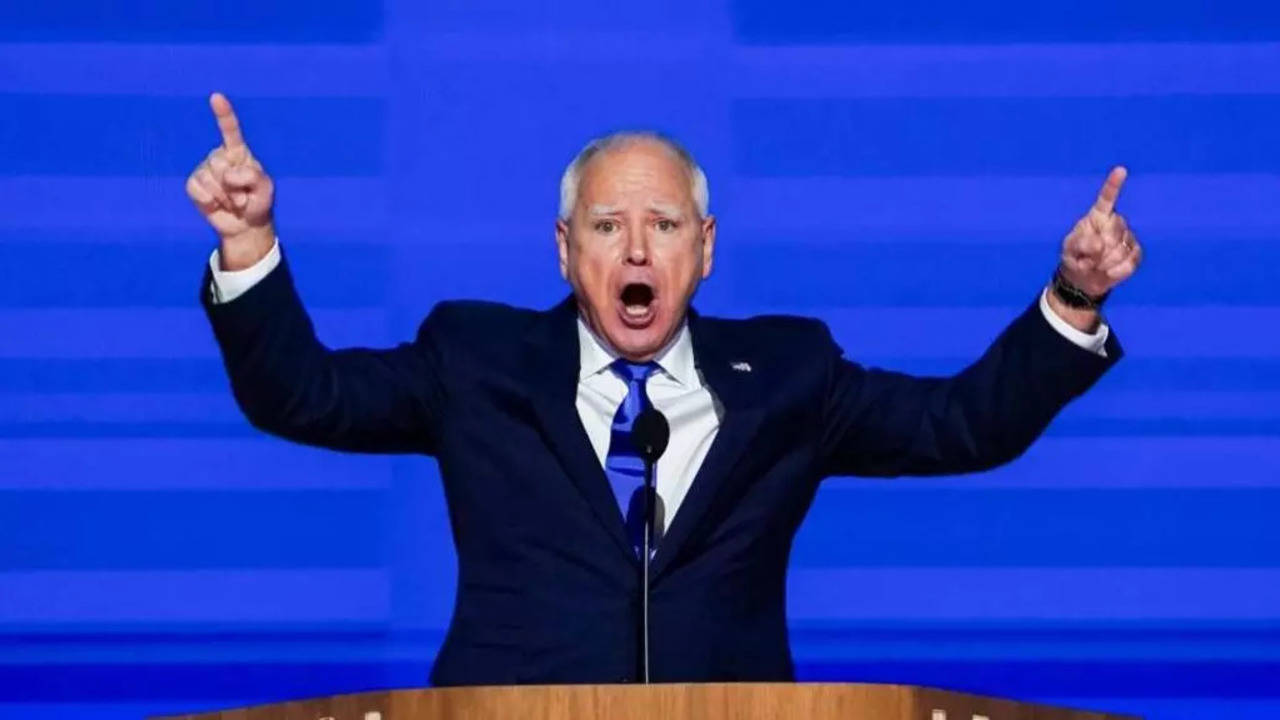
Tim Walz’s leadership is under scrutiny after multiple scandals involving fraud and mismanagement in Minnesota’s state agencies surfaced. Recent audits have sparked criticism from Republicans and independent watchdogs due to worries about oversight shortcomings and the management of taxpayer monies.
According to one audit, incentive cheques intended for frontline employees during the epidemic were sent to beneficiaries who weren't qualified. Another noted conflicts of interest in taxpayer-funded mental health programs, while a third showed weak control of a feeding program for underprivileged children, now related to the nation’s largest Covid-era fraud scam. Critics, notably Lisa Demuth, the state House GOP speaker, have referred to Walz’s administration for not holding agency leaders accountable for these failings.
Under the direction of the Minnesota Department of Education, the feeding program enabled suppliers to file false claims for payment, resulting in an estimated $250 million in federal money being embezzled. At the heart of the scam was a charity organization named Feeding Our Future, whose executive director, Aimee Bock, was charged with being the scheme's mastermind. More than 20 people have been found guilty out of the more than 70 who have been charged thus far.
State auditor Judy Randall pointed out that since Walz assumed office in 2019, no personnel changes have been made in response to audit findings, notwithstanding the seriousness of the claims. Inadequate agency responses to audits have been brought to light by Randall's office, with some agencies outright rejecting or contesting audit results. One agency neglected to address significant concerns in a 2021 review of mental health funds, including possible conflicts of interest. In the meantime, the education department came under fire for its condescending response to the audit of the feeding program.
Walz has been charged by Republicans for encouraging an unaccountable atmosphere. The vice head of the state's nonpartisan legislative audit panel, state senator Mark Koran, asserted that the Walz administration's appointments have been antagonistic to moves toward openness. Walz’s administration, however, has defended its actions, arguing that it has addressed most of the auditor’s recommendations and takes fraud seriously.
Special attention has been paid to the governor's handling of the Feeding Our Future affair. When Bock's organization was accused of engaging in fraudulent behavior in 2020, the state forwarded the allegation back to Feeding Our Future, so enabling the organization to conduct its own investigation. Walz has maintained that no state employees participated in illicit activity, although he recognized that some staffers failed to exercise due diligence.
Federal investigations into other Minnesotan fraud, such as Medicaid fraud and purportedly improper invoicing by addiction treatment facilities, have been prompted by this case. The Walz administration came under fire for failing to address these problems sooner; federal investigations into these programs were only made public following media inquiries.
Minnesota's three arms of government are controlled by Democrats, a circumstance that some argue has given the Walz administration more confidence. Nonpartisan observers like University of Minnesota political science professor Dan Myers contend that this political supremacy may be connected to the absence of accountability.
Democrats continue to back Walz in large numbers despite these reservations. His base has responded well to his approachable and laid-back leadership style, as they value his grounded demeanor. But some of his detractors contend that this carefree attitude has fostered a lenient climate in state government, which has fostered a climate that has fostered fraud and poor management.
These concerns have been seized upon by Walz's political rivals, who claim that political reasons prevented the government from acting decisively. A significant portion of the defendants in Feeding Our Future are from Minnesota's Somali population, a significant Democratic base. Opponents contend that bringing charges against members of this organization may have hurt Walz's and other Democrats' electoral prospects. One such Democrat is Minnesota Attorney General Keith Ellison, who has also been accused of being too soft when it comes to community fraud.
Walz has not been directly linked to any of the fraud cases, but the ongoing scandals have cast doubt on his capacity to provide efficient monitoring. Walz has not been able to alter the culture of loose supervision in state agencies, according to Bill Walsh, the director of communications at the conservative Center of the American Experiment.
The consequences of many fraud cases and ongoing federal investigations are putting Walz's responsibility as governor under intense scrutiny. It remains to be seen if these problems will affect his aspirations for the future, including running for vice president as the Democratic nominee. But the soaring volume of fraud prosecutions under his watch has raised questions about the integrity of Minnesota's state government and the efficacy of his leadership.

